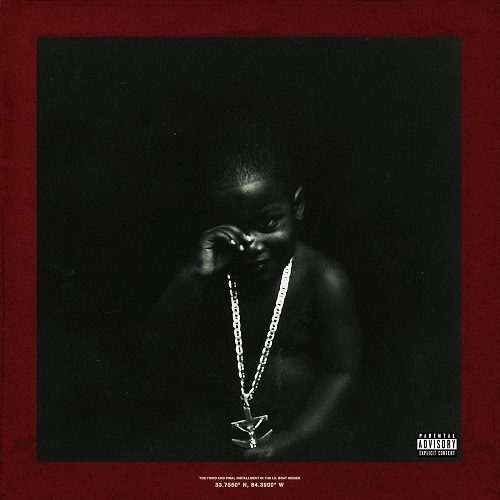Miles McCollum has spent the last four years of fame honing in on his whimsical craft while the rest of the world was hating. The colossal success of 2016’s “Broccoli” (the official song of that fateful summer) confirmed his youthful marketability in a competitive class of eccentric characters. I guess in hindsight it was a lot easier for money-hungry lobbyists to exploit a red-haired pizza lover over a Slaughterhouse affiliate or a dude inspired by Lord Infamous. Even Lil Uzi’s cultish aura wasn’t enough for Sprite to be like, “Yeah this is the guy we want in our Cinemark commercials before Hacksaw Ridge plays in front of a crowd of boomers.”
Marking Yachty as a sellout was always the easy route for rap traditionalists (ahem; Joe Budden and Charlemagne) who wanted to tear their ears and eyes out every time the 19-year-old proclaimed his ignorance for a 360 deal. To me this always felt unfair, especially in a world where big name labels like Atlantic thrive off of hoodwinking young African American artists with non-beneficial contract terms. Let’s be honest, did anyone under the age of 20 fully understand what a 360 deal was? Maybe some, but the majority of us were preoccupied with 2K tournaments and homework. Yachty just wants to spread a positive image by building his own superhero origin story (or his next pitch as Green Lantern).
His music’s always carried a sense of acceptance and eclectic versatility, even if his stylistic choices don’t always hit. The superhero alter ego he’s come up with is Lil Boat, the doppelganger who flip flops between sugary melodies, syrupy freestyle flows, and sing-rap yips. For better or for worse, these styles are the bread and butter for the “Lil Boat” franchise. The third installment is a continuation of the modern series, a 19-track summer blockbuster directed by a new-look Yachty. His red dreads may be nonexistent, but the brand he’s carefully curated continues to extend beyond just the music. “Oprah’s Bank Account” was the ideal selection for a first date before quarantine happened, and the 9-minute video that accompanied the single was memorable if not a tad self-indulgent. Yachty continues to prove his affinity for theatrics. When the vision comes fully into fruition, the music usually benefits.
His rapping ability finally sounds as animated as his personality. In the past – particularly on the inconsistent “Teenage Emotions”-Yachty sometimes sounded bored with himself, falling in the same cyclical mediocrity as his Quality Control counterparts the Migos (who are finally starting to sound more passionate about music). “Lil Boat 3” finds Yachty syncopating and stretching beyond his naturally baritone voice. He sounds more self-aware than ever, channeling his beloved infectious energy as the main driver for the album, rather than his erratic lyrical ability. “Split/Whole Time” is a great representation of this; the perfect marriage of Earl’s video game blips and Yachty’s rubbery debauchery. The repeated refrain at the beginning and the beat switch found halfway through presents this Super Mario-esque imagery reminiscent of the Playboi Carti-assissted “Get Dripped” from “Nuthin’ 2 Prove”.
“Sippin’ the peach soda
The n****s inside, they gon hide till the heat is over
I’ma rap till the beat is over
Two Chanel bags, the same price as my mink sofa”
His apparent nerdiness only serves as a small portion of Yachty’s varied appearance. Sure, it’s easy to act agnostic towards his constant infatuation with materialism (particularly during such a troubling time), but it’s also difficult to overlook his efforts with the protests. He’s been one of the few at his age to speak out against the racial injustice, and joined other celebrities in donating money to the Minnesota bail fund. He even demanded contributions from his labelmates at QC. Since then, he’s been heavily active in the community and on social media, morphing into a much-needed activist during a period where artists like Gunna appear preoccupied with their own success. His positive message speaks louder volumes than most people with his platform. The music reflects that colorful energy.
In the past, I’ve been critical of Yachty’s tendency to build a massive hardnosed façade (“X-Men” and “DN Freestyle” specifically), but on “Lil Boat 3”, the style sounds much more polished and refreshingly unhinged. “Demon Time” and “Westside” display a whirlwind of sound and lyrical potency. Yachty’s never been more in-pocket rapping about his own identity in a genre that’s been close-minded toward his antics.
“Ready to hunt a clown
I been that n***a since uh, I can’t remember
Since when? Wintertime, and I remembered December
Wore a dress, now they’re tryna’ slander my gender”
To me, this is what “Teenage Emotions” was supposed to be like. An unrushed combination of aesthetics orchestrated by an outsider who continues to tread his own path. He still has one or two lines of ineptitude (“I’m with my dogs like a chew bone” is found on “Love Jones,” by far the most lifeless song on the album), but they’re not as apparent as past projects because there’s a stark improvement all around.
His recent associations with Glo Gang and Detroit’s bourgeoning underground tells me he’s done his research for future experimentation. You can hear it in his voice. The mile-a-minute sidestepping on the classic posse cut “T.D” (holy shit Tierra); the candy-coated squeakiness of “Lemon Head,” the mid-verse inflection change on “Can’t Go.” It’s all there. Even the 80s sheen found within “Till the Morning” doesn’t sound as half-assed. Thug and Durk somehow seem right at home with Boat. Yachty’s own recruit Draft Day goes bar-for-bar with him on “Demon Time.” Future whistles on “Pardon Me.” This is the beauty of hip hop. Differing personalities coming together to compete with Yachty’s glowing virtuosity. It’s exactly why he’s been one of the most integral personalities of the past decade. Not because he’s marketable; but because he does what he wants, regardless of who’s been hating him for months.

